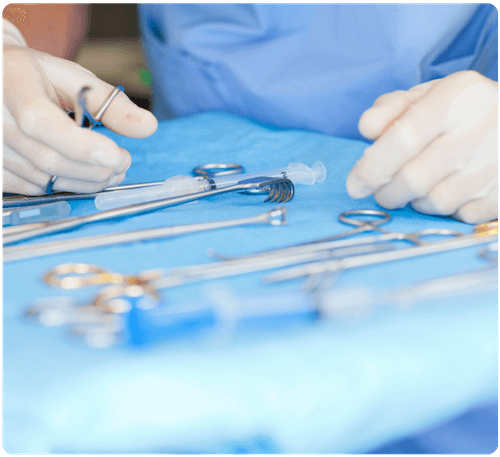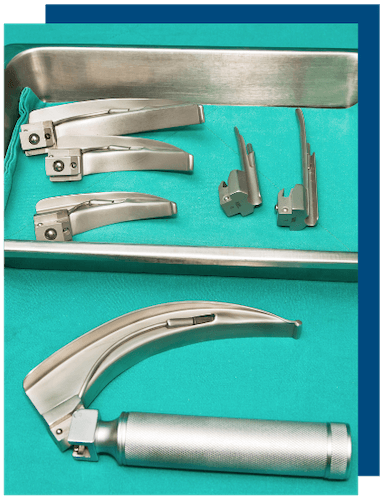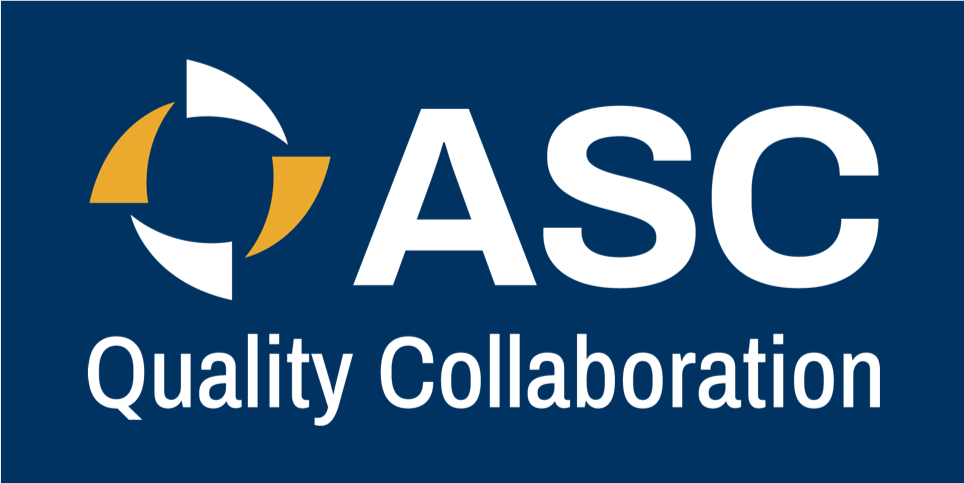Single-Use Device Reprocessing Toolkit
The resources in this toolkit may only be used for internal improvement and education efforts. They may not be used for commercial purposes.

Effective reprocessing is critical to reducing the risk of transmission of healthcare associated infections when single-use devices are reused. Reprocessing of single-use devices must be performed by an FDA-approved reprocessing facility and should not be done in individual facilities.
The ASC Quality Collaboration has assembled a variety of resources and information that may be used to supplement your current processes to improve reprocessing practices.
The Single-Use Device Reprocessing Toolkit contains both essential resources and a broader array of materials, including:
Assessment Tools
- Single-Use Device Reprocessing: What CMS Surveyors Are Looking For: Perform a self-assessment using the same tool CMS surveyors use when evaluating reprocessing practices in the ASC setting.
Implementation Aids
- How to Identify FDA-Registered Reprocessors of Single-Use Devices: This guide outlines how to identify FDA-registered reprocessors of single-use devices using the online registration database available at the FDA website.
- FAQs for Reprocessed SUDs (AMDR): The Association of Medical Device Reprocessors provides answers to frequently asked questions about reprocessing single-use devices. Access these questions using the link above.
- Reprocessing of Single-Use Medical Devices Policy Template: This sample single-use device reprocessing policy is based on U.S. Food and Drug Administration (FDA) requirements. It should be adapted as needed for use in each facility.
Training Materials
- To the best of our knowledge, no free resources are currently available.
Monitoring Tools
- Reprocessing Audit Template: This sample template may be used to periodically monitor the single-use devices sent for third-party reprocessing. This template may be modified to accommodate the needs of each center.
Workplace Reminders
- Reprocessing Guide Template: This sample template may serve as a means of reminding staff members which single-use devices are approved by the facility for reprocessing. This template should be adapted to meet the individual needs of each facility.
- Single-Use Device Reprocessing Poster: If your facility has decided to reprocess single-use devices, this poster may serve as a reminder to staff members.

Guidelines from Leading Authorities
- Guideline for Disinfection and Sterilization in Healthcare Facilities (CDC): This 2008 Centers for Disease Control and Prevention (CDC) guideline, which was updated in 2019, includes information on single-use devices. Please consult page 81 of the document for material pertinent to single-use devices.
Resources Cited
The materials presented here include publicly available resources from the following organizations:
- U.S. Food and Drug Administration (FDA)
- Centers for Disease Control and Prevention (CDC)
- Association of periOperative Registered Nurses (AORN)
- Association of Medical Device Reprocessors (AMDR)
- Johnson & Johnson/MedTech/Sterilmed
Comments and other feedback may be directed to Nina Goins, Executive Director, ASC Quality Collaboration.
Contact us today to learn more about how we can support you.
ASC Quality Collaboration
The only organization exclusively dedicated to advancing patient safety and quality of care delivery in ambulatory surgery centers.
